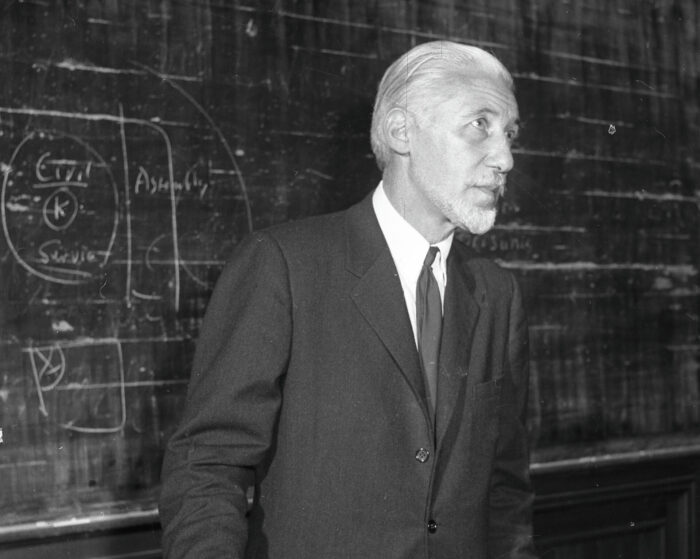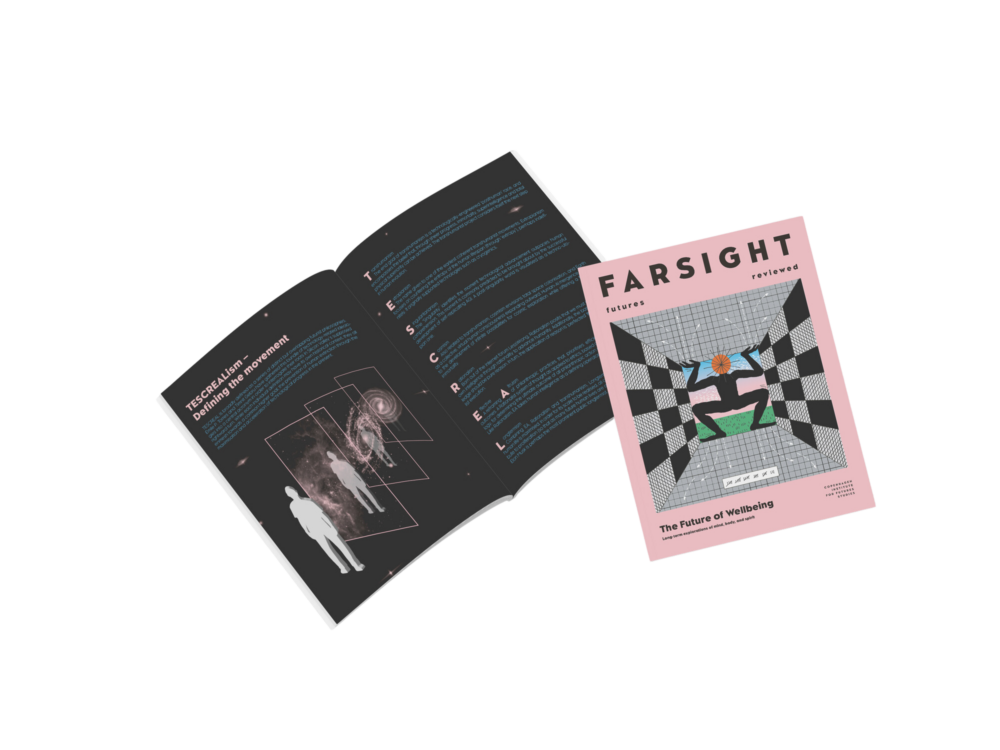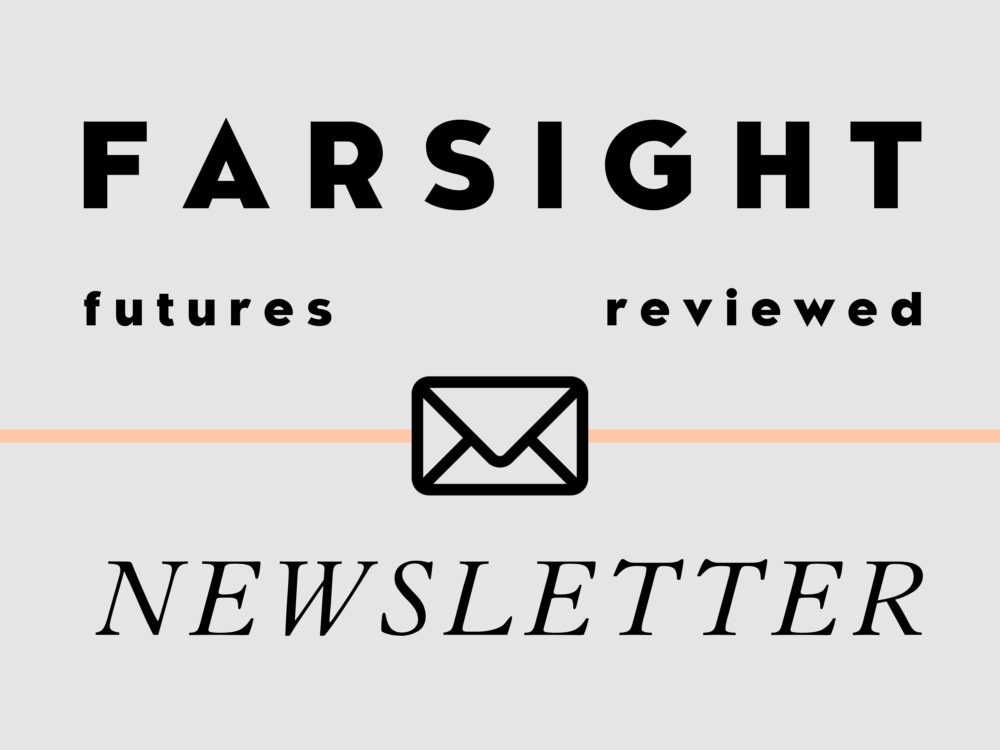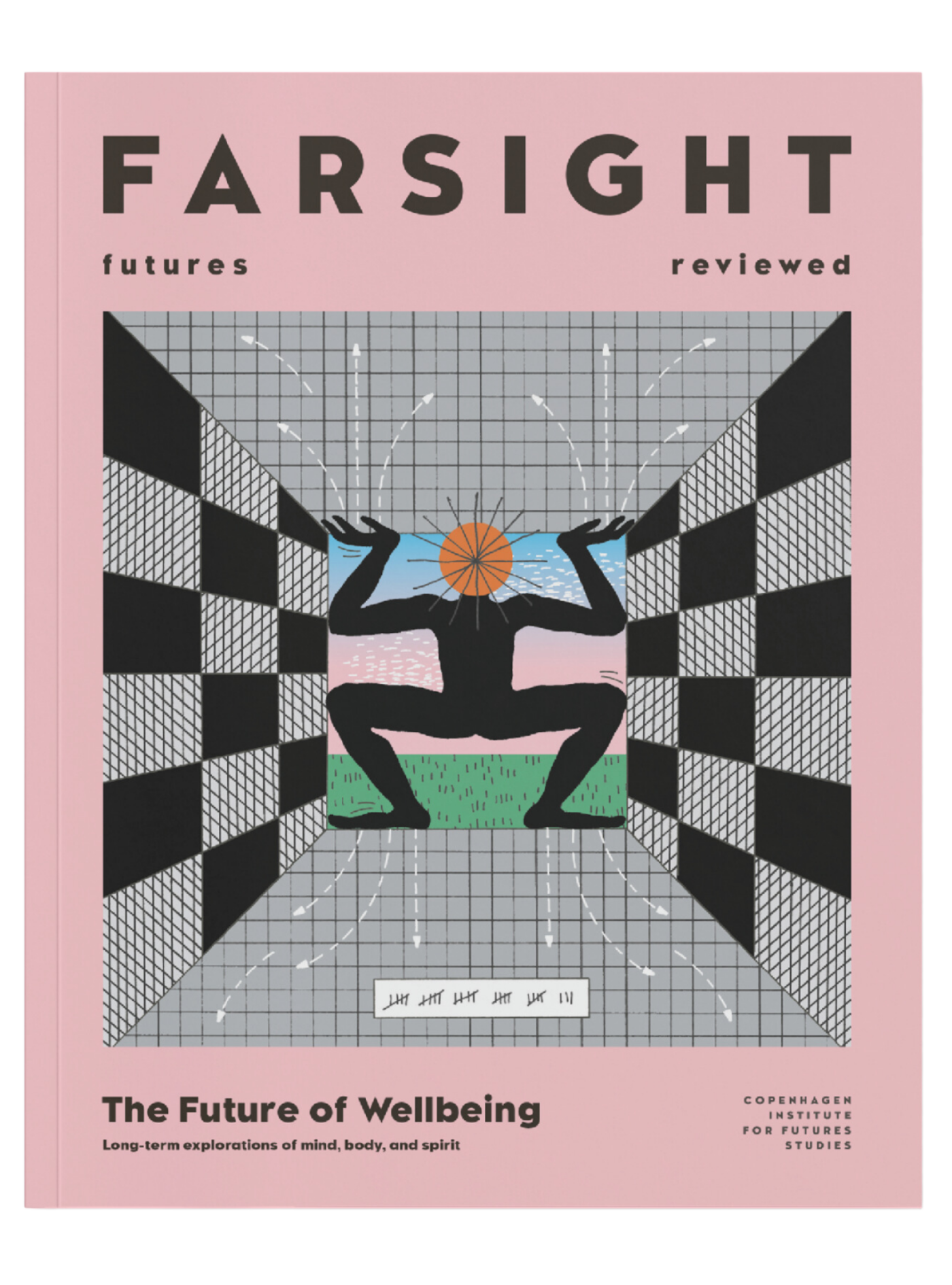
In turn, we use cookies to measure and obtain statistical data about the navigation of the users. You can configure and accept the use of the cookies, and modify your consent options, at any time.

Illustration: Midjourney AI
“We now live in a VUCA world” is one of the most frequently encountered assertions in the public discourse around business and technology. It comes in different variations, including “the business environment has never been so unpredictable”, and “the consensus among executives is that uncertainty is at all times high”, but the core argument is the same: we have never lived in more uncertain times.
Various public figures advocate this position. These include top futurists like Amy Webb and Peter Schwartz, prominent public intellectuals like Yuval Noah Harari, spokespeople from the International Monetary Fund, and a host of business commentators, journalists and executives who publicly discuss the future, broadly defined. The business scholar Henry Mintzberg puts it very appropriately when he states:
“Whenever a chief executive sits down at a laptop, and the laptop realizes that (s)he is going to give a speech on management, it automatically types ‘we live in times of great change’. Every speech by every chief executive for the last 50 years with a few exceptions has started with ‘we live in times of great change.”

Broaden your horizons with a Futures Membership. Stay updated on key trends and developments through receiving quarterly issues of FARSIGHT, live Futures Seminars with futurists, training, and discounts on our courses.
become a futures memberFull disclosure: as a strategic foresight educator and writer, I confess I have also fallen into this trap of groupthink in a couple of articles. In this essay, however, I will encourage you to rethink this commonly held belief by providing three reasons why it is misguided.
Let us start from the beginning. The first thinkers to argue that the business environment had never been more uncertain were writers such as Alvin Toffler and Igor Ansoff. Writing in the 1960s, their perspectives were shaped by the rapid technological developments seen in the decades following the Second World War. These writers went on to influence many others who built upon their arguments over the following years. Today, the consensus on unprecedented uncertainty in the business environment is widely accepted and virtually indisputable.
However, this argument rarely holds up in comparison with history. Toffler claimed that in the 1960s the business environment was highly turbulent. Yet, compared to the Great Depression of the 1930s or the Second World War of the 1940s, the 1960s were one of the most stable periods in the history of the industrialized West. Another more recent example came during the COVID-19 pandemic. Many commentators contended that the chaotic and nonlinear spread of the virus, along with the many contradictory policy responses, confirmed that we live in extraordinarily uncertain times. Yet this pattern of chaos and nonlinearity has occurred in many previous pandemics. Similar developments were described in accounts of the 17th century plague by the 19th century Italian writer Alessandro Manzoni, for instance.
There is certainly a case to be made for certain kinds of acceleration. The frequency of development of new influential technologies has increased, products’ lifecycles have shortened, and innovation diffusion has quickened.
Technological and social changes today are also, arguably, much more frequent and interconnected than in the pre-digital age. A technological discovery in Korea can influence the consumption choices of an individual, institution, or company in Brazil in just a few days. The stock of a company whose CEO has been accused of work harassment can plummet in minutes, with global repercussions. A TikTok video can turn viral and reach all parts of the globe in seconds.
But technological acceleration in some domains does not necessarily mean that the world is generally becoming less predictable, more uncertain, or more threatening. Many forms of military violence have seen a massive decline globally over the past few decades. Many natural disasters have also become more predictable, and so their impacts have become easier to curtail.
If some forms of change have waxed, others have waned, and changes in the nature of change do not equate to higher uncertainty. Additionally, the kinds of disruptive and unforeseeable political events, economic downturns, and pandemics that executives struggle to foresee are not unique to our era. All in all, the many reasons why it is often advocated that uncertainty (either general or in the business environment specifically) is at all time high simply do not stand the test of history.
It is undeniable that many of the risks facing us make the future highly uncertain. These include climate change, technological advancements in AI and robotics, as well as dramatic demographic shifts. However, did not the billions of people in previous epochs of history experience equally great levels of uncertainty for equally concerning reasons? Did not Napoleon or the first Qin Emperor of China – not to mention the countless other people alive in those eras – also experience times of great uncertainty? Was their world not turbulent too?
Let us illustrate this point through a simple thought experiment. Imagine for a moment that you are a farmer living in second century BC China. Every few months, a new ruler pops out of nowhere, pillages your entire village, and imposes a new grain tax that you need to provide to his government every lunar month, or else you will be executed. Also, it is mandatory that your son be recruited in the army to fight the barbarians from the north. And let us not forget, you do not have the technology to defend yourself from the whims of nature, so every time it rains heavily, all your crops are flooded, and you must start from scratch. That sounds like a very uncertain world to me.
Hence, to conclude this first point, a first common but misguided reason why so many public intellectuals and business commentators claim that the current times have never been more uncertain is likely because they delude themselves into thinking that they inhabit a time in history unique for its unpredictability. Yes, it is true that the world is changing in a way that has never occurred before, but this assertion has been true at each and every point in history – for all 120 billion individuals who have lived on Earth before us.
In truth, this has been known for a very long time. In the 1920s the economist Frank Knight distinguished between risk, where the probability of the outcome of an event is known, and uncertainty, where the probability of the outcome of an event is not known. Knight maintained that high levels of uncertainty are a defining feature of an economy. It has always been there, and always will be.
Older traditions from across the world affirm the notion that uncertainty has always been with us. The Chinese philosophy of Daoism is based on continuous change. The Japanese concept of Mujō, which likely derives from Daoism, also means impermanence, that everything and everyone is in constant change. The same concept is called Anicca in Pali, the sacred language of Theravāda Buddhism, where life itself is compared to a river that is never made up of the same water. The Greek philosopher Heraclitus made a similar observation when he famously said that “No man ever steps in the same river twice, for it is not the same river and he is not the same man.”
These wisdoms from disparate traditions all point to the conclusion that a constantly changing nature brings about high levels of uncertainty, and that high levels of uncertainty have always been a defining feature of human life. Short periods of peace and certainty seem to have been the exception rather than the norm. After all, the Chinese historical masterpiece The Romance of the Three Kingdoms begins with the famous line: “The Empire, Long Divided, Must Unite; Long United, Must Divide.”
Yet the delusion of contemporary uniqueness is not the only reason why so many business gurus, futurists, and public intellectuals argue that we have never lived in more uncertain times. So, let’s examine the second reason why the claim of unprecedented uncertainty is misguided.
Behind the argument of unprecedented uncertainty also lies the failure of planning to confront an uncertain environment. That is, it is planning that is experiencing high levels of uncertainty, not the environment per se.
Indeed, strategic planning in business and government has become prominent only in the last few decades. When, in the 1960s, the discipline of strategic management started to grow and flourish, it was almost exclusively dominated by the planning school of thought and its various adaptations. This school, pioneered by thinkers such as Michael Porter, Igor Ansoff and Bruce Henderson, emphasises a formal and rigorous analysis of the external environment of the organisation to develop the best possible strategy. Yet the downside of planning is that it gives organisations the illusion of control of an environment that is fundamentally uncertain.
With planning, we risk falling into the misguided perception that if we “plan it right,” uncertainty will be reduced or even disappear. Yet this is an impossible goal. When confronting uncertainty, the best approach is to develop coping mechanisms rather than attempting to diminish or eliminate it. Without a compelling vision and robust mechanisms for dealing with uncertainty, and relying solely on a plan, every minor change in the environment makes us feel that uncertainty is increasing.

Explore the world of tomorrow with handpicked articles by signing up to our monthly newsletter.
sign up hereUnsurprisingly, at the first sign of brittleness that disrupted the short period of certainty that followed World War II, business planners started to realise that planning did not work. Plans designed in a period of economic growth, political stability, and a rising consensus over democratic and capitalist values across the Western world were shuttered by a series of destabilising challenges including stagflation, oil crises, Watergate, the Vietnam War, and above all the slow but inevitable transition from a manufacturing economy to a digital economy. It is no coincidence that precisely at this time an onslaught of writers, public intellectuals, and business commentators began arguing that the world had never been more uncertain.
The failure of planning is further corroborated by the shortcomings of the instruments currently used to measure uncertainty. Indeed, uncertainty indicators track how uncertain executives feel about the environment they operate in. In other words, what these indicators measure is perceived uncertainty. Real uncertainty, in fact, cannot be observed.
For instance, let us consider one of the most used indicators, the world uncertainty index. This indicator tracks how often the word “uncertain” occurs in reports from The Economist. This and other similar indices may document the upward trend in nervousness on the part of the Economist’s Intelligence Unit, perhaps reflecting anxieties felt by executives about their inability to plan effectively, but they do not track uncertainty itself. And this realisation brings us to the last reason why the argument of unprecedented uncertainty is misguided.
Strategic foresight refers to a set of practices that help organisations keep track of forces of change in their business environment, to interpret and combine these forces of change by creating scenarios, and to proactively use scenarios to improve decision making in the present. Surprisingly, if we have done our ‘strategic foresight homework’, we would realise that most of the phenomena that catch executives off guard have either been underway for a long time or have always been with us. Pandemics are certainly nothing new, and technologies like AI, self-driving cars, or 3D printing did not materialise overnight. Often, executives do not do their due diligence on the many changes in the external environment, and they come to know them only when it is too late to prepare for them. This likely contributes to their feelings about high uncertainty.
Foresight educator Andy Hines states that change is slower than we think, and that “if there is one thing that strategic foresight practices can practically guarantee, it is that if we commit to them, we will feel more confident about the future, because we would come to know that we will not be surprised.” Hines notes that many strategic foresight practitioners share a common frustration founded in the fact that change feels too slow compared to the many untapped potentialities showcased by a careful analysis of the multiple futures ahead of us. This is the exact opposite of the consensus among executives, business commentators, and public intellectuals, likely because few of them practice strategic foresight.
Yet unfortunately, many strategic foresight practitioners and futurists now also increasingly subscribe to the idea that the world has never been as uncertain and fast moving as it is today, so that this statement seems to have become a sacred cow in the field of futures studies and foresight that is seldom scrutinised. This might support selling strategic foresight consulting services, but I believe that a more honest way to promote the discipline would be to commit to a different intellectual stance, one that argues:
“The world has always been very uncertain, nothing new about that. To cope with it, there is set of tools that can help you out, just as they would have helped Napoleon or the first emperor of China to cope with uncertainty in their own era. At the time they lived these tools did not exist. Now, we have the privilege that they do exist. That set of tools is called strategic foresight. Do you want to try them out?”
[1] Volatility, uncertainty, complexity, and ambiguity.
[2] Henry Mintzberg, Co-Founder of CoachingOurselves, on Management.
[3] Rohrbeck, R. (2010). Corporate Foresight: Towards a Maturity Model for the Future Orientation of a Firm. Springer.
[4] Spitz, R. & Zuin, L. (2023). The Definitive Guide to Thriving on Disruption: Volume I – Reframing and Navigating Disruption. Disruptive Futures Institute.
[5] Mintzberg, H. (1994). The Rise and Fall of Strategic Planning. Free Press.
[6] Hines, A. (2020). Change is slower than we think. Hinesight.

Stay up-to-date with the latest issue of FARSIGHT
Become a Futures Member